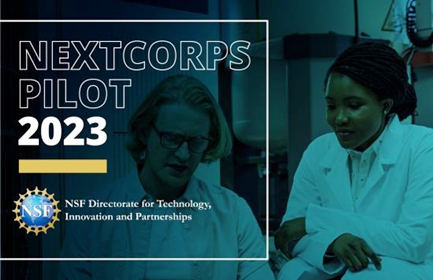
The Accelerator Ignition Program
The U.S. National Science Foundation announced a new $4.5 million pilot, the Accelerator Ignition Program, which is designed to help maximize the chances of success for startups by making available novel curriculum and support methodologies, including techno-economics training and methods to evaluate financials. Lessons learned from the pilot will inform further research and scaling of this approach. The pilot period is initially set to be two years.
Program Introduction
The new pilot is led by NextCorps, a startup accelerator based in Rochester, New York, that connects entrepreneurs and small businesses with experts, capital and customers to help them grow their business and contribute to regional innovation and economic development. The pilot will harness curriculum and learnings from two of NextCorps’ proven accelerators: Luminate, the world’s largest accelerator for startups developing optics, photonics and imaging (OPI) enabled technologies, and the Manufacturing Accelerator, which helps early-stage companies reduce the risk, waste, and cost associated with getting hardware from prototype to mass production.
To test the model, Binghamton University’s Koffman Southern Tier Incubator, another project partner of this pilot, will launch a new accelerator for startups working on energy storage applications. This accelerator will pair entrepreneurs with NextCorps’ packaged curriculum and the region’s battery industry expertise and resources, which include support from academic, corporate, regional clusters, professional societies, and government entities.
Program goals
Luminate, which currently encompasses a portfolio of 60 companies with an estimated combined valuation of $650 million, offers entrepreneurs financial support along with comprehensive programming and lab facilities to help them scale their OPI enabled technologies and businesses. The startups are supported by carefully recruited advisors who are matched to their technology needs and immediate business goals, and through industry-specific seminars, ongoing mentorship, and introductions to vetted supply chain providers, manufacturers, and investors.
NextCorps’ Manufacturing Accelerator provides structured curriculum, training, and connections to manufacturers and suppliers who are receptive to working with hardware-based startups to help them scale the manufacturing of their products. It has been successfully implemented in Rochester, NY, and in Pittsburgh, PA, in partnership with local National Institute of Standards and Technology Manufacturing Extension Partnership Centers in each region.
The Binghamton region is internationally recognized for its expertise in energy storage. The addition of an energy-focused startup accelerator at the Koffman will help NextCorps and Binghamton to test the Accelerator Ignition model, while also attracting the best startups and talent to the region to advance innovative ideas and the regional economy.
The Accelerator Ignition effort also connects to recent regional initiatives in New York to bolster domestic research and manufacturing of semiconductors, along with supply chains–which are both critical to deep-tech applications–in the United States, through the CHIPS and Science Act. The funder of the Accelerator Ignition Program, NSF's Technology, Innovation and Partnerships Directorate, was authorized by the Chips and Science Act. Congressman Joe Morelle said, “With federal investments in our local innovation ecosystem, we’re creating jobs and solidifying long-term economic stability. This grant from the NSF will enable NextCorps to continue to partner with other innovation initiatives in our region kickstarted by the CHIPS and Science Act.”